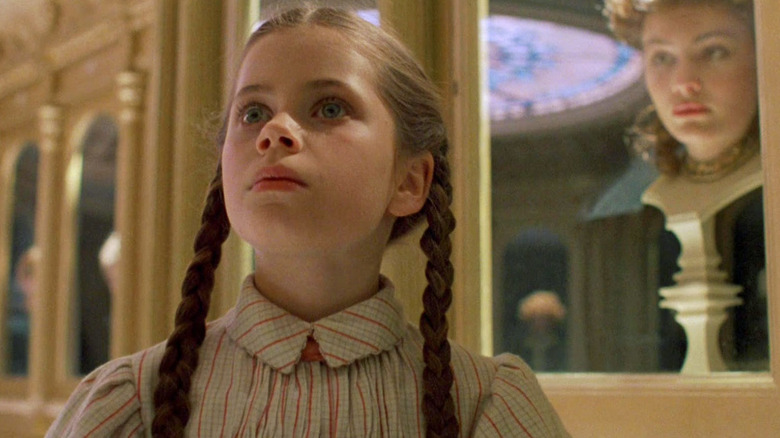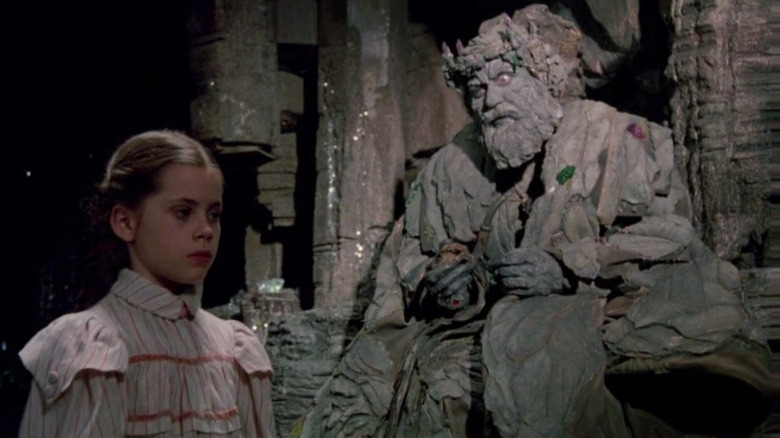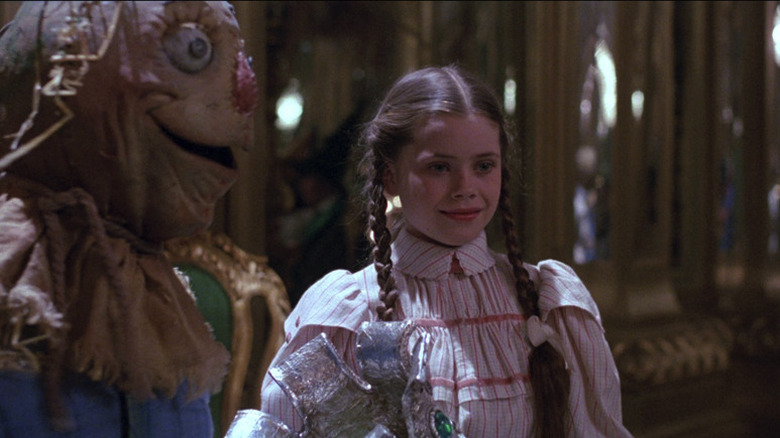The Daily Stream: Return To Oz Finds Hope In The Darkness
(Welcome to The Daily Stream, an ongoing series in which the /Film team shares what they've been watching, why it's worth checking out, and where you can stream it.)
The Movie: "Return to Oz" (1985)
Where You Can Stream It: Disney+
The Pitch: Dorothy Gale (Fairuza Balk) is back home in bucolic Kansas with her loving family, having survived the terrible tornado that took her "somewhere over the rainbow" ... and yet, all is far from well. Concerned by her insistence the Land of Oz and its citizens truly exist, Dorothy's relatives decide to take her to a mental institution to receive treatment for her apparent delusions.
After fleeing from the hospital one night with the aid of a mysterious girl, Dorothy awakens the next morning to find herself in Oz once more. In her absence, however, the realm has been taken over and laid to ruin by the despotic Nome King (Nicol Williamson), leaving it to Dorothy and a new band of Ozians to rescue her beloved former traveling companions and restore the land.
"Return to Oz" starts off with Dorothy nearly undergoing old-school electroshock therapy (back when it was unsafe and harmful), and it only gets darker from that point on. Its vision of Oz is that of a post-apocalyptic landscape surrounded by a desert that kills anyone who touches it with so much as a pinkie toe. The Emerald City is now a ghost town where the civilians have been turned to stone, some of them missing their heads for reasons that are later made terrifyingly clear. It seems the Scarecrow was right to pack heat in "The Wizard of Oz" after all.
Why it's essential viewing
Released by Disney in 1985, "Return to Oz" is the first and, as of 2022, only film directed by venerable editor Walter Murch ("Apocalypse Now," "The English Patient"). The script he and "Walk the Line" scribe Gill Dennis wrote was inspired by L. Frank Baum's Oz novels rather than director Victor Fleming's classic 1939 film "The Wizard of Oz." It leans heavier into the weirder aspects of Baum's source material while injecting it with an extra dose of horror. Critics were pretty mixed on Murch's don't-call-it-a-sequel movie, which bombed at the box office.
As a kid, however, "Return to Oz" was very much my jam. There are images in the film — the hall of screaming heads in Princess Mombi's (Jean Marsh) castle, the faces of the Nome King's shrieking servants bursting out of walls and trying to strangle Dorothy as she and her friends run away — that have continued to live rent-free in my head since I stayed up late at night to watch the movie on the Disney Channel for the first time when I was younger. For as much as I enjoyed "The Wizard of Oz" growing up, it's Murch's nightmarish vision of the titular land that I'm nostalgic for.
You can imagine my delight when I revisited the film as an adult and found that it's still pretty dang good, in my humble opinion. Its pre-CG visual effects (stop-motion, practical puppetry) have a hand-crafted and unrefined look befitting the jagged edges of its story, which is quite intense for a family movie but still makes room for moments of gentle levity here and there. It's also a thematically sophisticated film that respects its target audience, like so many other cherished yet distressing (if not downright depressing) fantasy adventures made in the '80s.
Through the looking glass darkly
Tone aside, the key difference between "The Wizard of Oz" and "Return to Oz" is the subtext of the stories they tell. While the former very much nods to the idea Oz might well be a place Dorothy simply imagines whenever she's under great stress (hence, many of the Ozians she meets have a real-word counterpart), "Return to Oz" digs even deeper into this conceit. Is Oz some type of alternate dimension that parallels what's happening in our world at any given time? Or is it actually a tool that Dorothy's mind has devised, allowing her to better process traumatic events in her life?
Wisely, "Return to Oz" declines to provide a clear answer to this question. Instead, the film recognizes that what matters is the various trials Dorothy undergoes in Oz afford her the hope and bravery she needs to navigate whatever darkness she's dealing with back in Kansas. The threat of the Nome King is as real to her as anything else, and it's only through the support of her comrades in Oz (who, again, may or may not be extensions of her own mind) that she's able to overcome him and emerge all the healthier and happier on the other side of the looking glass.
To paraphrase Neil Gaiman (who's never been afraid to try and scare the bejeezus out of children, either), complex and scary fantasy/horror stories like "Return to Oz" serve to "inoculate" kids, helping them to get through whatever horrible things their own lives may throw at them. If Dorothy can survive her terrible situation, maybe they can, too.


